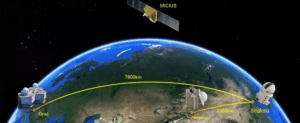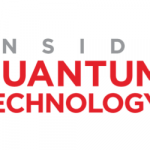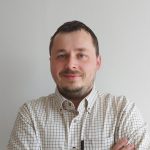Quantum News Briefs August 22: Fujitsu to start selling quantum computers in 2023, Quantum computing should not repeat mistakes made by world refusing to regulate AI, & China’s compact QKD system paving the way to cost-effective satellite-based quantum networks & MORE

Quantum News Briefs August 22 begins with news that Fujitsu intends to start selling 64-qubit computers in 2023 followed by a cautionary article warning that quantum computing should not repeat the mistakes made by refusing to regulate AI. Next is an update on China’s compact QKD system that is claimed to pave the way to cost-effective satellite-based quantum networks and MORE.
*****
Fujitsu to Start Selling Quantum Computers in 2023

Fujitsu has teamed up with scientific research institute Riken to become the first Japanese company to sell quantum computers starting next year according to article in PCMag this morning.
The first quantum computer Fujitsu intends to sell next year has 64 qubits, and the intended market is research companies working in the fields of medicines, materials, and financial forecasting.
Nikkei Asia reports that Fujitsu has been working with Riken since last year through the creation of a new research center called the Riken RQC-Fujitsu Collaboration Center(Opens in a new window) located in Wako city, Saitama prefecture. A team of 20 researchers work there, combining Riken’s quantum computer technology using superconducting circuits with Fujitsu’s computing technology and knowledge of quantum technology applications.
*****
Quantum computing should not repeat mistakes made by world refusing to regulate AI
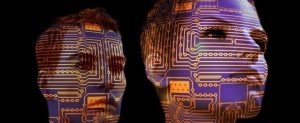
Vivek Wadhwa, a columnist at Foreign Policy, and Mauritz Kop, a fellow and visiting scholar at Stanford University together have written an article appearing in Foreign Policy warning that quantum computing must not repeat the mistakes made by refusing to regulate AI. The article is lengthy with in-depth explanation of each of the authors’ concerns. Quantum News Briefs summarizes below.
The world must not repeat the mistakes it made by refusing to regulate AI—where regulatory failure has given the world algorithmic bias that hypercharges human prejudices, social media that favors conspiracy theories, and attacks on the institutions of democracy fueled by AI-generated fake news and social media posts. The dangers lie in the machine’s ability to make decisions autonomously, with flaws in the computer code resulting in unanticipated, often detrimental, outcomes. In 2021, the quantum community issued a call for action to urgently address these concerns. In addition, critical public and private intellectual property on quantum-enabling technologies must be protected from theft and abuse by the United States’ adversaries.
To avoid the ethical problems that went so horribly wrong with AI and machine learning, democratic nations need to institute controls that both correspond to the power of the technology as well as respect democratic values, human rights, and fundamental freedoms. Governments must urgently begin to think about regulations, standards, and responsible uses—and learn from the way countries handled or mishandled other revolutionary technologies, including AI, nanotechnology, biotechnology, semiconductors, and nuclear fission. The United States and other democratic nations must not make the same mistake they made with AI—and prepare for tomorrow’s quantum era today.
*****
Compact QKD system paves the way to cost-effective satellite-based quantum networks
Researchers report an experimental demonstration of a space-to-ground quantum key distribution (QKD) network using a compact QKD terminal aboard the Chinese Space Lab Tiangong-2 and four ground stations according to Science Daily. The new QKD system is less than half the weight of the system the researchers developed for the Micius satellite, which was used to perform the world’s first quantum-encrypted virtual teleconference. Quantum News Briefs summarizes the announcement below.
The demonstration represents an important step toward practical QKD based on constellations of small satellites, a setup considered one of the most promising routes to creating a global quantum communication network.
“QKD offers unconditional security by using single photons to encode information between two distant terminals,” said research team member Cheng-Zhi Peng from the University of Science and Technology of China. “The compact system we developed can reduce the cost of implementing QKD by making it possible to use small satellites.”mThey also found that QKD performance can be boosted by building a network of satellites orbiting at different angles, or inclinations, in relation to the equator.
“Our new work demonstrates the feasibility of a space-ground QKD network based on a compact satellite payload combined with constellations of satellites with different orbit types,” said Peng.
*****
Funding from UK Research and Innovation (UKRI) could open new doors for nuclear physicists
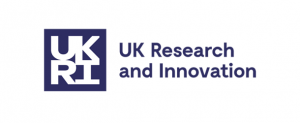 Thanks to funding from UK Research and Innovation (UKRI), a team at the University of Surrey will develop new algorithms for quantum computers to allow physicists to grapple with complex questions that could help understand how nuclei are formed through reactions in stars, and how they are built up from interactions between protons and neutrons. These developments could give rise to a rich range of applications in energy and medicine. The era of quantum computing may change the way nuclear physicists understand well-established rules in their field, allowing them to undertake calculations too complex for classical computers, according to researchers from the University of Surrey
Thanks to funding from UK Research and Innovation (UKRI), a team at the University of Surrey will develop new algorithms for quantum computers to allow physicists to grapple with complex questions that could help understand how nuclei are formed through reactions in stars, and how they are built up from interactions between protons and neutrons. These developments could give rise to a rich range of applications in energy and medicine. The era of quantum computing may change the way nuclear physicists understand well-established rules in their field, allowing them to undertake calculations too complex for classical computers, according to researchers from the University of Surrey
The University of Surrey will share in the UKRI’s £6M investment into the Quantum Technologies for Fundamental Physics programme. Professor Grahame Blair, Science and Technology Facilities Council Executive Director, Programmes, said: “This new cohort of projects should make a valuable contribution to our understanding of the universe using cutting-edge quantum tech such as quantum computing, imaging, sensing and simulations. The new grants continue to support the UK research community in exploring the diversity of quantum technology applications for fundamental science – from neutrino mass studies to searches for violations of fundamental symmetries of nature.”
Sandra K. Helsel, Ph.D. has been researching and reporting on frontier technologies since 1990. She has her Ph.D. from the University of Arizona.







